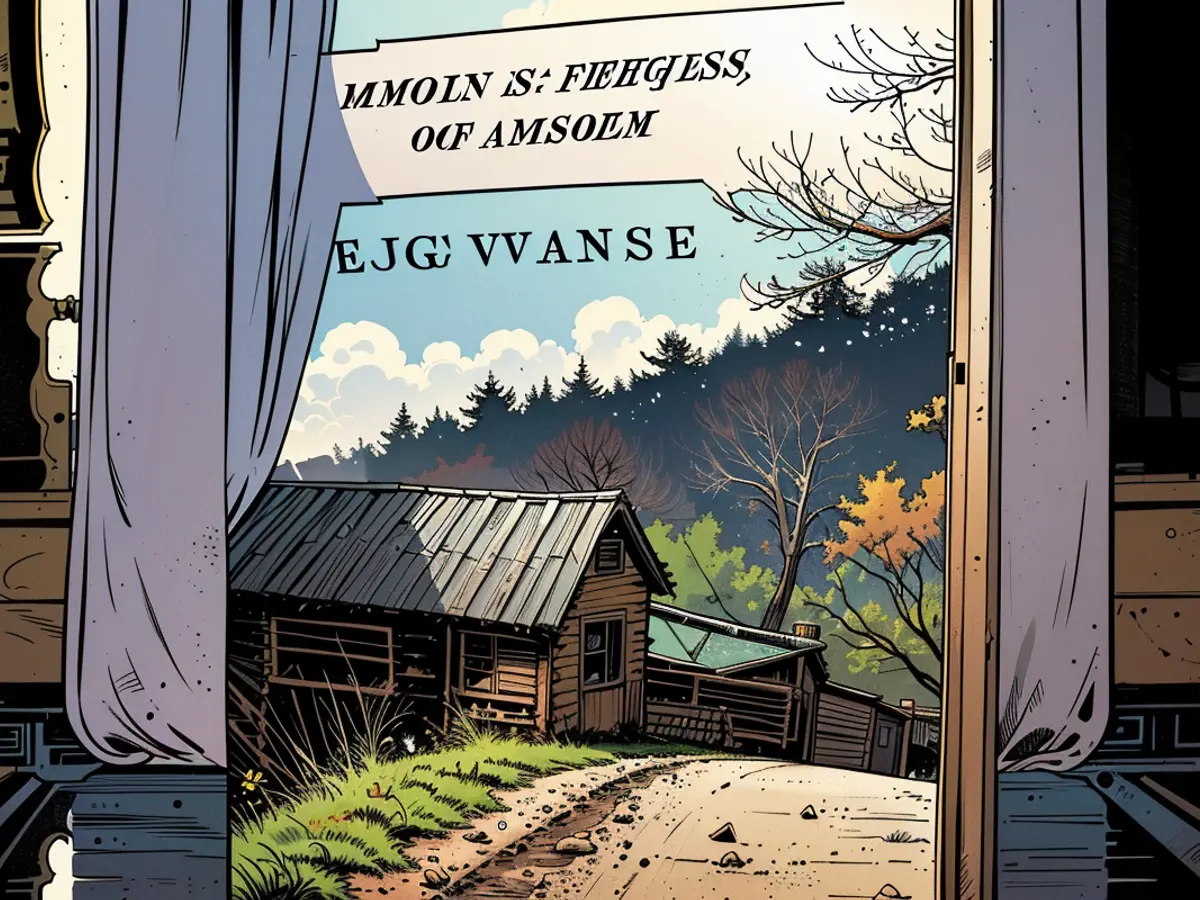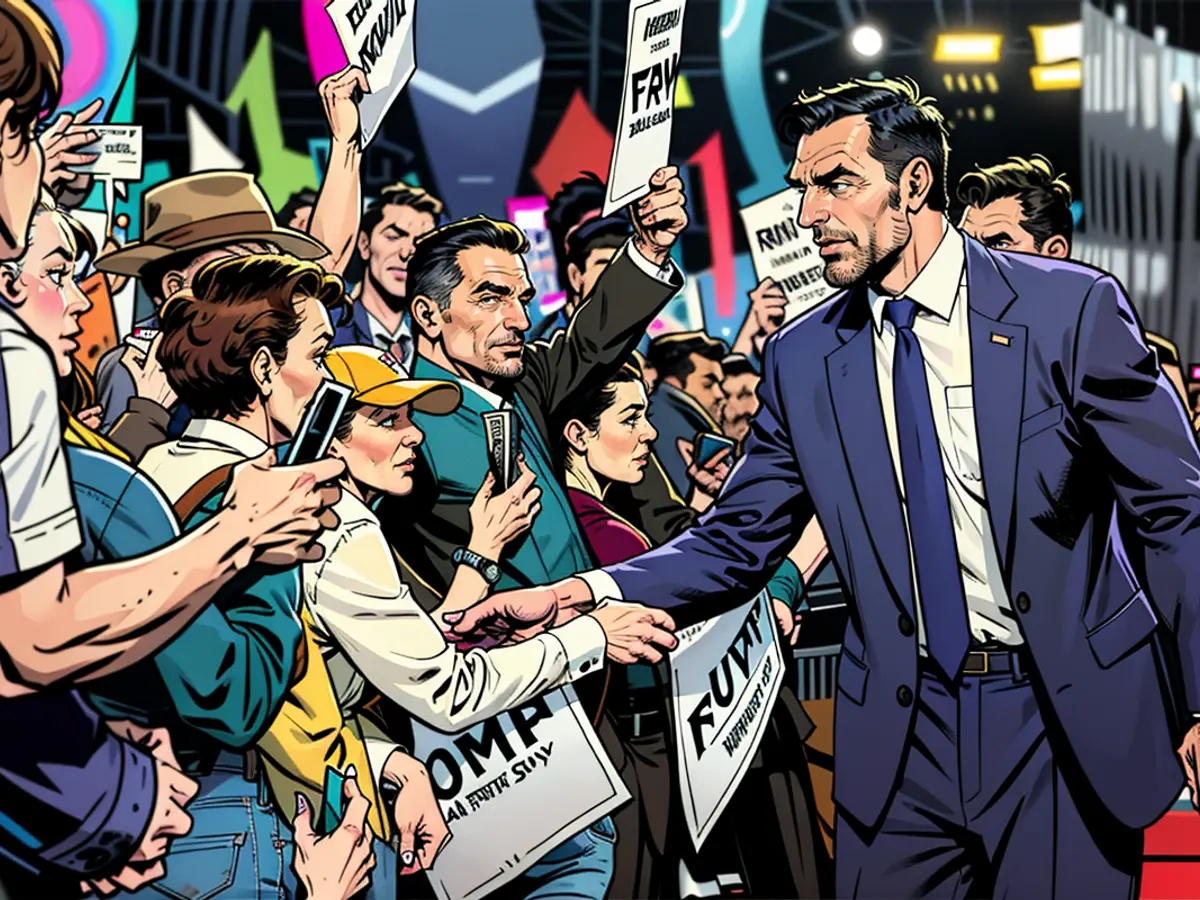JD Vance, Trump’s VP pick, once called him a ‘moral disaster,’ and possibly ‘America’s Hitler’
“I go back and forth between thinking Trump is a cynical asshole like Nixon who wouldn’t be that bad (and might even prove useful) or that he’s America’s Hitler,” Vance wrote in a message to a friend in 2016. “How’s that for discouraging?”
In 2016 and 2017, Vance, then best-known for penning the best-selling book “Hillbilly Elegy”said Trump was “cultural heroin” and “just another opioid” for Middle America. He also contemplated voting for Hillary Clinton (he ultimately said he planned to vote for independent candidate Evan McMullin.)
“Fellow Christians, everyone is watching us when we apologize for this man. Lord help us,” he tweeted after the “Access Hollywood” tape was published in 2016.
Vance also liked tweets that said Trump committed “serial sexual assault,” called him “one of USA’s most hated, villainous, douchey celebs,” and harshly criticized Trump’s response to the deadly 2017 White nationalist rally in Charlottesville, Virginia.
“There is no moral equivalence between the anti-racist protestors in Charlottesville and the killer (and his ilk),” Vance wrote in a deleted-tweet.
Trump’s vice president announcement on Monday caps a dramatic reversal on Vance’s part. He made his most critical remarks when he was promoting his memoir “Hillbilly Elegy,” which was published in 2016. The book had catapulted him to fame as a “Trump whisperer,” capable of explaining Trump’s appeal to the White working class.
But by 2020, Vance fully embraced Trump, telling podcaster Megyn Kelly after the election he voted for him. A year later, Vance announced he was running for Senate in Ohio and vied for Trump’s endorsement, which he ultimately received.
But at the beginning of that campaign, Vance was forced to apologize after CNN resurfaced old tweets from the 2016 campaign and early in 2017 in Trump’s administration that he had deleted.
“I did say those critical things and I regret them, and I regret being wrong about the guy,” Vance told Fox News in 2021.
In a statement to CNN last month, Vance cited Trump’s “many successes in office” for changing his mind on the former president.
“I’m proud to be one of his strongest supporters in the Senate today and I’m going to do everything in my power to ensure President Trump wins in November - the survival of America depends on it.”
Vance won his Senate race in 2022 by 6 percentage points – less than the 8.1 percentage points Trump won the state by in 2020.

Vance’s remarkable political evolution underscores the broader trend of realignment in the country and the GOP as the party becomes one of working-class White voters.
‘I don’t think he actually cares about folks’
In comments promoting his book, Vance often said Trump played to or exploited White working-class voters’ fears and prejudices.
“And I cannot stand Trump because I think he’s a fraud,” one radio host said to Vance when promoting his book in 2016. “I think he’s a total fraud that is exploiting these people.”
“I do too. And it’s like you, like you said, I, I agree with you on Trump because I don’t think that he’s the person. I don’t think he actually cares about folks,” Vance said. “I think he just recognizes that there was a hole in the conversation and that hole is that people from these regions of the country, they feel ignored.”
In September 2016, Vance argued Trump’s immigration policies like the “great Mexican Wall,” were overly simplistic and aimed to give folks something to latch on to.
“At the heart of Trump’s immigration message is that if we had less immigration, we would have much better jobs,” he said. “I think it’s a lot more complicated than that. My own sense is that Trump definitely simplifies these problems. I don’t think if you build a great Mexican wall, all of a sudden, all of these steel mill jobs are going to come back to southern Ohio, but it at least gives people something to latch onto.”
Vance also argued in 2016 that if White working-class people attended church, they would not be as attracted to Trump.
“I think Trump provides that sense of community that many in the White working class would have, if they actually went to church,” Vance told New York public radio. “I think if folks went to church a little bit more, they may not be as excited or as attracted to the sort of social experience that Trump provides.”
Vance once said racism played a role in Trump support
Vance also said that racism and xenophobia played a role in Trump’s rise.
“There is definitely an element of Donald Trump’s support that has its basis in racism, xenophobia, but a lot of these folks are just really hardworking people who are struggling in really important ways,” Vance said in a September 2016 “PBS NewsHour” Interview.
“Definitely some people who voted for Trump were racist and they voted for him for racist reasons,” Vance said in an interview at the University of Chicago’s Institute of Politics.
Speaking with CNN in October 2016, Vance criticized Trump for “actively antagonizing” Black voters, claiming this tactic was a long-standing Republican strategy.
“It’s not just that Donald Trump doesn’t speak to issues of special concern of minority voters or Black voters, it’s that he seems to like actively antagonizing a lot of the Black voters,” Vance said during a panel discussion.
In a July 2016 interview with American Conservative, a right-leaning publication, he added Trump was making the problem of racial resentment “worse” by talking about “rapist immigrants and banning all Muslims” as part of his message.
To that end – Vance once tweeted he found Trump reprehensible.
“Trump makes people I care about afraid. Immigrants, Muslims, etc. Because of this I find him reprehensible. God wants better of us,” he wrote in October 2016.
In 2016, Vance expressed his disdain for Trump's political rhetoric, labeling him as "cultural heroin" and "just another opioid" for Middle America. Despite this, he contemplated voting for Hillary Clinton, ultimately deciding to go with independent candidate Evan McMullin.
In the midst of Trump's presidential campaign, Vance's political views on the former president were not solely positive. He tweeted that Trump made people he cared about afraid, referencing immigrants and Muslims.








